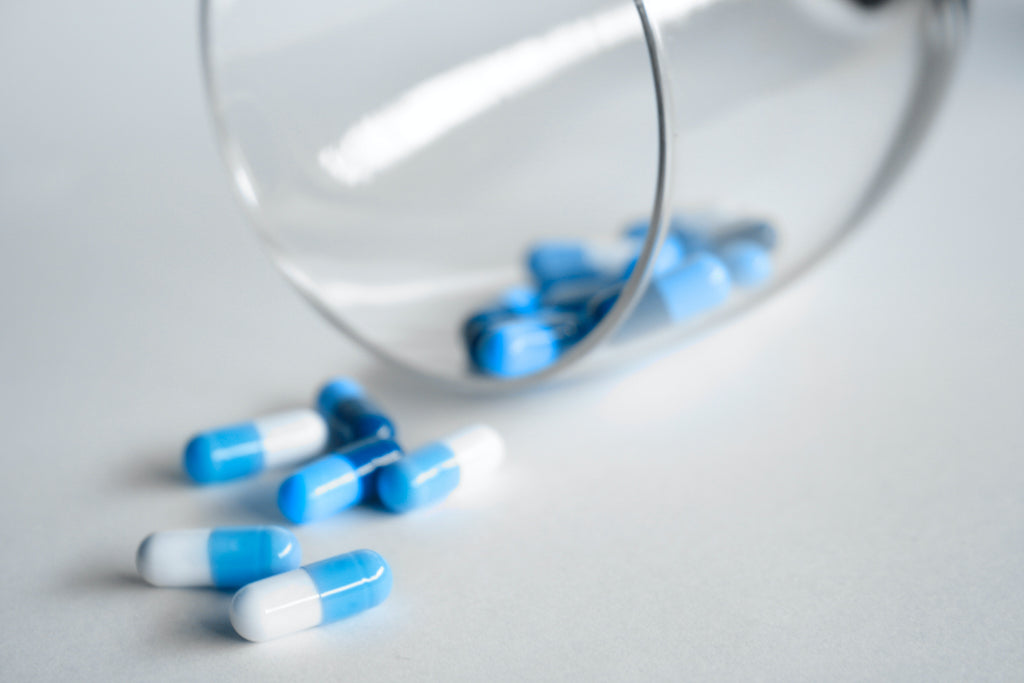Follow these four recommendations to improve your gut microbiome naturally and effectively after antibiotics
Antibiotics are highly effective in combating bacterial infections. However, prolonged use can upset your entire gut microbiome and even cause liver damage if overused. While antibiotics fight and clear out the infection, they also fight the good bacteria in your stomach, disrupting your gut microbiome. Such ill effects can cause prolonged health challenges if not treated at the right time. Thankfully, there are a few things you can do to reduce such effects and start recovering quickly.
1. Increase fermented foods

Since antibiotics reduce the good bacteria in your gut, which ensures overall good gut health, the focus should be on increasing their count. You can do so by introducing or increasing fermented foods in your diet. Fermented foods help reset the gut microbiome by naturally restoring balance in the gut and allowing the good bacteria to repopulate. Two fermented foods that you can easily find and add to your diet are:
- Kombucha- A healthy green or black tea fermented drink that boosts energy, detoxifies the body and improves the immune system.
- Pickles- Fermented pickles are a great source of vitamin K and serve as a great snacking option for people trying to lose or manage their weight. Along with taking care of your gut, it also has the nutrients essential for blood clotting, making it all the more important in your diet. Make sure you get them from the refrigerated section and look at the label to ensure they are fermented.
2. Focus on plants and easily-digestible foods

Right after you have stopped taking your antibiotics and the intestinal issues have started surfacing, you need to give your gut a rest. The best way to accomplish that would be through a light, yet wholesome diet. Focus on plant-based foods like legumes, lentils, vegetables, oatmeal and fruit. Consuming such fiber-rich foods will keep you fuller for longer and improve the functioning of good gut bacteria.
3. Make prebiotics and probiotics your friend

Nothing works better for your gut than prebiotics and probiotics. I suggest consuming natural pre- and probiotics from food during and after the course of antibiotics. Garlic is a natural prebiotic and increases the good Bifidobacterium in your gut. Some other prebiotics include dandelion greens, bananas, onions, asparagus and barley. Probiotics are also essential for a healthy gut and they can be consumed in several forms such as yogurt, fermented cheese, kimchi, kefir sauerkraut and more. You can trust probiotics to lower the colon’s pH levels for easier excretion and reduce the growth of pathogens in the intestine, thus ensuring a balanced gut microbiome. They work incredibly well in treating antibiotic-induced diarrhea as well.
4. Focus on a healthier lifestyle overall

While eating right is crucial for restoring harmony in your gut microbiome, there’s more that you can do to accelerate the healing process.
- Drink plenty of water throughout the day, all day. Hydration will help the gut and smoothen digestion naturally.
- Move! This is important—focus on at least 20-minutes of exercise, preferably in nature every day.
- Your body needs time to rest and recover after putting up a fight against the effects of antibiotics. Make sure you get 7-8 hours of sleep every night to stay energetic throughout the day and wake up with the sun and stop eating around 7PM.

